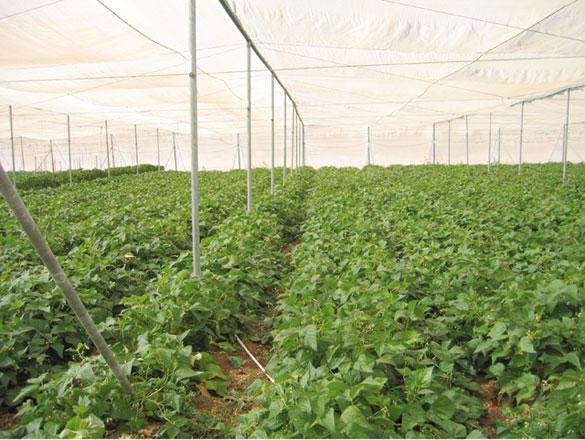You are here
Agriculture Ministry urges farmers to consider climate change when planting crops
By Hana Namrouqa - Aug 24,2016 - Last updated at Aug 24,2016
AMMAN — The Ministry of Agriculture on Tuesday urged farmers to cultivate vegetables that can withstand freezing temperatures, to avoid losses and mitigate the impact of climate change in Jordan.
“The changing climate is among the main challenges facing the agriculture sector; therefore, farmers are requested to deal with its impact because it is a reality,” said Ministry Spokesperson Nimer Haddadin.
“In recent years, the usually-warm Jordan Valley, especially the northern parts, has been witnessing sub-zero temperatures,” Haddadin told The Jordan Times. Farmers are advised to plant vegetables that can survive frost spells and freezing temperatures during winter, he said.
During the upcoming orweh tishreniyeh, a local agricultural term referring to the planting season for winter crops, farmers in the Jordan Valley and other areas usually cultivate a variety of vegetables including cucumbers, tomatoes, aubergines and courgettes.
“In September, farmers will start preparing their lands for the orweh teshriniyeh. We advise them to plant crops that can withstand the very cold weather of the marbaniyeh, such as lettuce, cauliflowers, cabbage and carrots,” Haddadin said.
Marbaniyeh is the local name for the 40 coldest days of winter, when cold and dry easterly winds cause frost spells when coupled with temperatures around zero degrees and clear skies.
Farmers should wait until marbaniyeh ends to plant crops sensitive to the cold, the ministry official advised. Field vegetables such as potatoes, zucchini, beans and aubergines are “very sensitive” to the cold weather of marbaniyeh, he said, adding that every year, many crops are damaged when frost spells hit.
But although there is a risk of crop damage, farmers seek to take advantage of heavy rainfall during the cold spell.
The Kingdom usually gets 30 per cent of its annual rainfall during marbaniyeh, which starts on winter solstice and ends by January 30.
Already a victim to climate change, Jordan is expected to witness a 15-60 per cent decrease in precipitation and a 1-4°C increase in temperatures, which will in turn have serious potential impacts on its natural ecosystems, river basins, watersheds and biodiversity, according to the 2013-2020 Jordan Climate Change Policy.
Climate change over the past two decades has also caused a drastic drop in rainfall and prolonged dry spells in the Kingdom, according to a study by the Water Ministry.
Related Articles
AMMAN — The government should provide farmers with early-warning frost detection systems instead of advising against planting crops that are
AMMAN — The "early" formation of frost in the northern and central parts of the Jordan Valley indicates a climate change that could herald m
AMMAN — The Ministry of Agriculture on Sunday started examining the magnitude of crop damage in the Jordan Valley following a five-day frost















